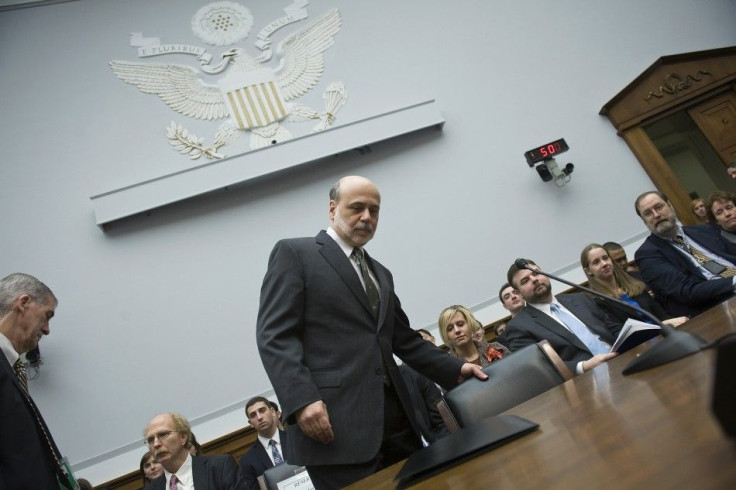Bernanke Plays Killjoy in Pessimistic Speech to Congress

U.S. Federal Reserve Chairman Ben Bernanke played killjoy Wednesday, delivering a pessimistic assessment of the nation's economic condition in his semi-annual address to the House of Representatives.
The recovery of the U.S. economy continues, but the pace of expansion has been uneven and modest by historical standards, Bernanke said in a considerably more guarded tone than recent statements from central bank peers.
While Bernanke didn't present Congress with any substantially new information, his predictions of the growth prospects for U.S. economic activity placed him squarely in the lower-range of economic forecasters.
Bernanke suggested GDP growth in the next few quarters would proceed at a pace close to or somewhat above the 2.25 percent growth seen in the second half of 2011. That's in contrast to members of the Federal Reserve's top rate-setting committee, which Bernanke acknowleged has a more varied forecast outlook, with estimates among those members ranging from 2.2 to 2.7.
Further, his presentation appeared designed to justify more monetary intervention, but skirted around making concrete proposals for future monetary loosening, which many in the market were expecting.
He noted the fact economic recovery wasn't a solid given that could be ascertained from different signals received recently from the labor market than from indicators of final demand and production adding that economic growth will have to be supported by a continuation of the highly accommodative stance for monetary policy.
But it was Bernanke's tone on recent developments, above all, that was most pessimistic.
Although the nation's stubbornly high unemployment rate fell to a three-year low of 8.3 percent in January from 9.1 percent in August, Bernanke warned future gains might be harder-won.
The Fed chief said the unemployment rate was still at historically high levels, while household spending and consumer sentiment are only growing moderately. He added that gains in the housing sector were likely to be transient, overshadowed by tight lending standards and prospective buyers unsure about their own personal economic futures.
The European debt crisis has also burdened global markets. Fiscal and financial strains in Europe have weighed on financial conditions and global economic growth, and problems in U.S. housing and mortgage markets have continued to hold down not only construction and related industries, but also household wealth and confidence, Bernanke noted.
Fed watchers said Bernanke's comments cast a pall over the markets. U.S. equity markets, which had been in positive territory before the Fed Chairman spoke, dropped during his speech.
People were expecting that the Fed would loosen policies, even if the perception is that the economy is doing well, James Dailey, who manages $215 million at TEAM Financial Management LLC in Harrisburg, told Bloomberg. The investor sentiment changed as the Fed committed to nothing. This is the manic nature of the market.
© Copyright IBTimes 2025. All rights reserved.




















